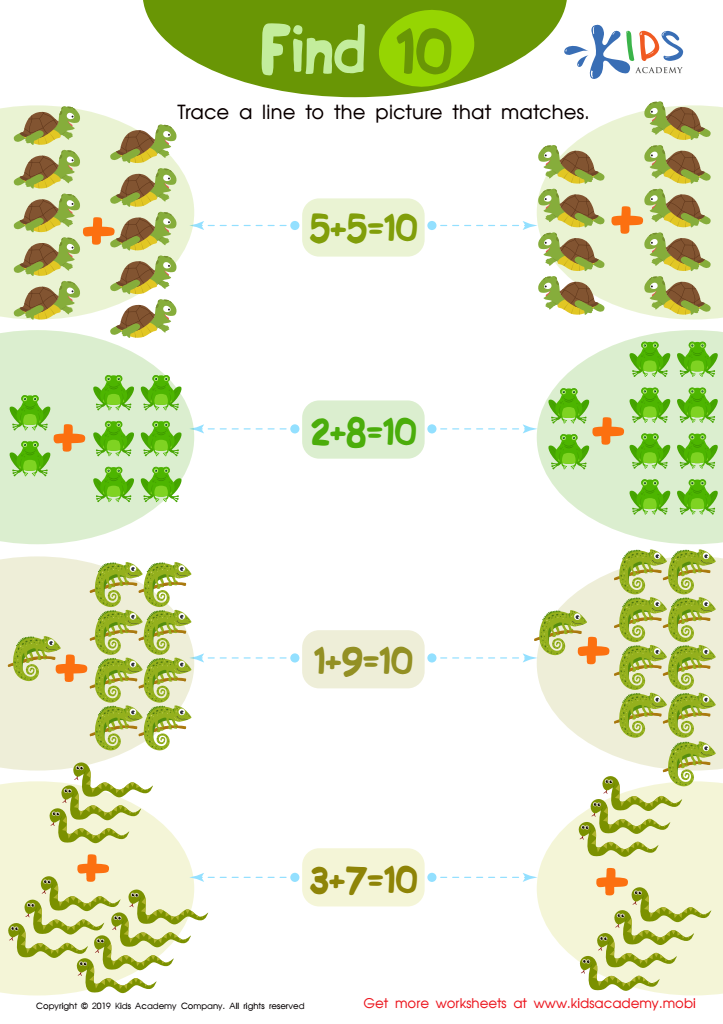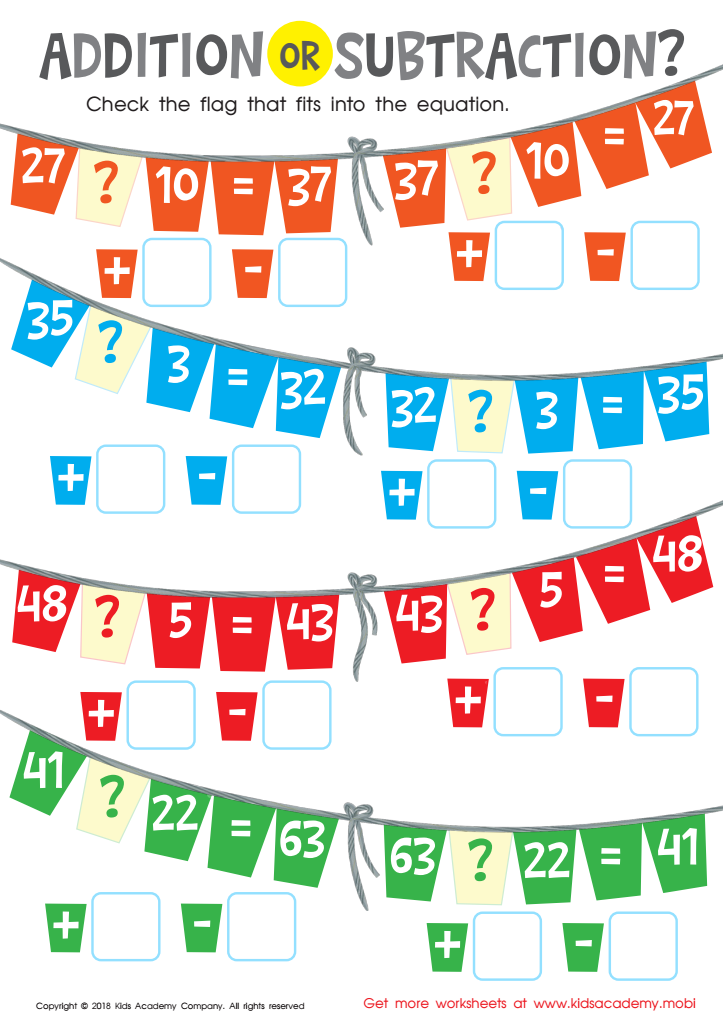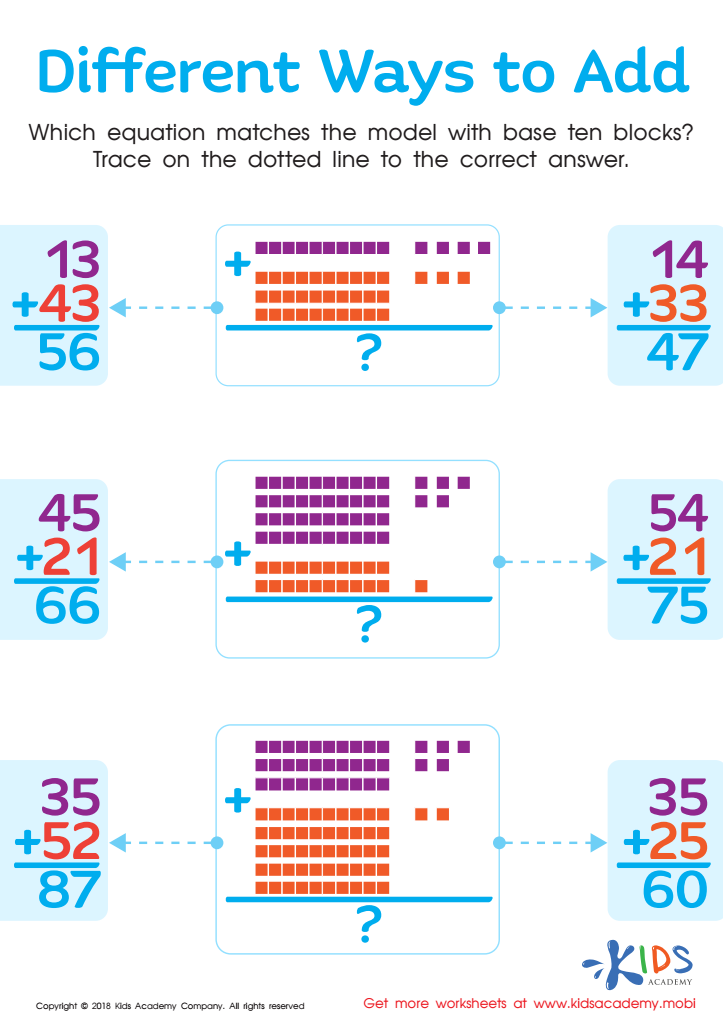Addition skills Addition Facts Worksheets for Ages 5-8
4 filtered results
-
From - To
Enhance your child's math prowess with our engaging Addition Facts Worksheets designed specifically for ages 5-8. These interactive resources help young learners master essential addition skills through fun activities and exercises. Our worksheets feature colorful visuals and entertaining problems, making learning enjoyable while reinforcing key concepts. Tailored for different learning levels, these worksheets are perfect for practicing basic addition facts and developing mental math abilities. Foster your child's confidence in math and lay the foundation for future success through consistent practice. Explore our collection today and watch your little mathematician thrive!


7 Continents and 7 Seas Worksheet


Find 10 Worksheet


Addition or Subtraction? Worksheet


Different Ways to Add Worksheet
Addition skills are foundational for children's overall mathematical development, making it crucial for parents and teachers to prioritize teaching addition facts to children aged 5-8. Mastering addition helps foster confidence and competence in math, setting the stage for more complex concepts in the future, such as subtraction, multiplication, and division.
Knowing basic addition facts helps children develop problem-solving skills and enhances their ability to think critically. At this age, children are also building their cognitive functions, and activities involving addition can support this development while making learning enjoyable through games or interactive activities.
Furthermore, proficient addition skills enhance children's ability to perform everyday tasks such as telling time, shopping, or planning. As they are often unaware of the math around them, integrating addition into real-life situations bridges the gap between classroom learning and practical application.
Finally, for teachers, emphasizing addition helps to create a positive classroom environment where students feel successful. Celebration of small wins, like improving speed or accuracy in addition, can motivate learners, encouraging a lifelong interest in mathematics. By investing time in developing these essential skills, both parents and teachers play a vital role in shaping children’s mathematical journeys and boosting their future academic success.
 Assign to My Students
Assign to My Students
















